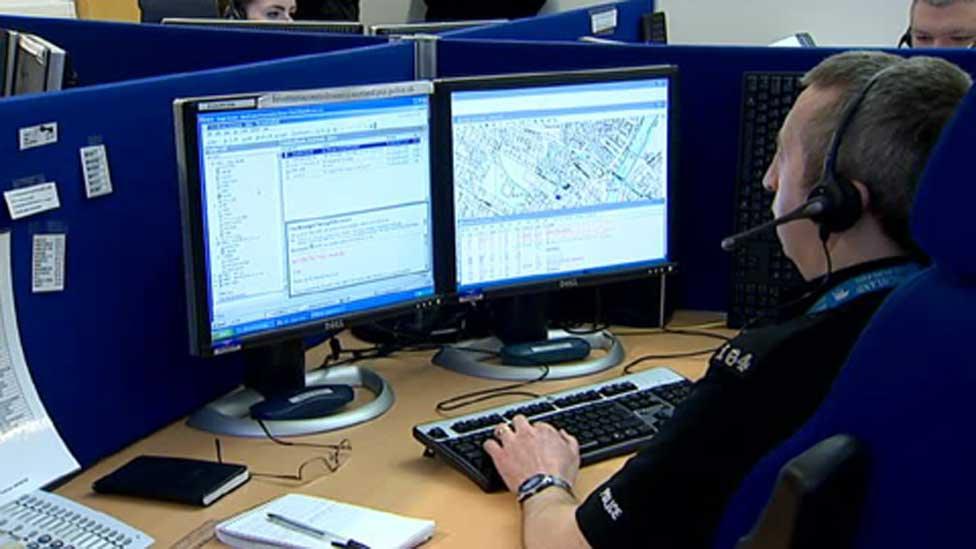Dyfed-Powys Police chief wants one Welsh force
- Published
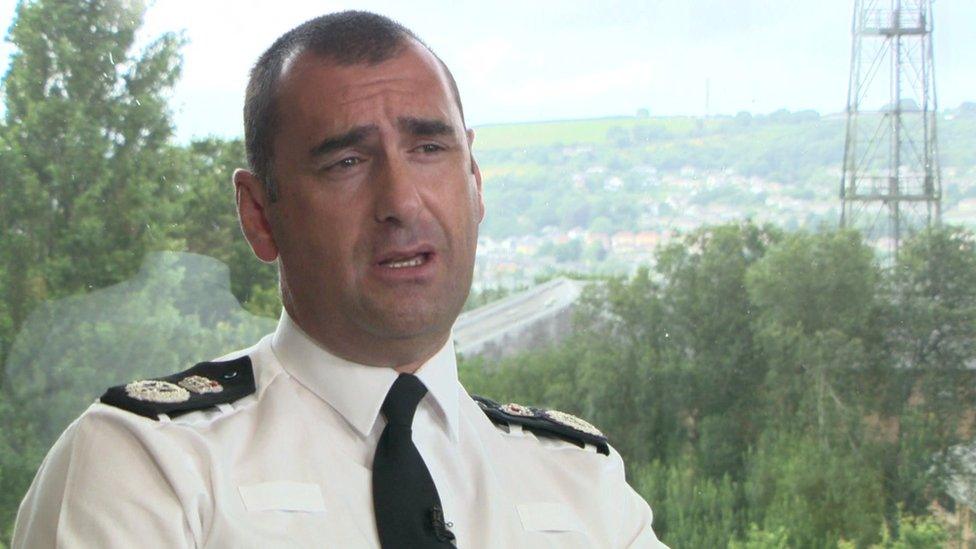
Dyfed-Powys Police boss Richard Lewis wants a unified service by 2030
Wales' four police forces should be scrapped and replaced with a single nationwide service, according to Dyfed-Powys Police's new chief constable.
Former Cleveland Police boss Dr Richard Lewis has said this should be in place by 2030.
"(If) the Americans can put a man on the moon in eight years, I think we can unify four police services," he said.
The Home Office said the existing structure meant everyone had a direct say on policing in their area.
And South Wales Police and Crime Commissioner Alun Michael told BBC Radio Cymru's Dros Frecwast, the idea of having one single Welsh force was "stupid".
But Dr Lewis said merging forces into Heddlu Cymru - Welsh for Police Wales - would be more effective.
It would be the third largest force in England and Wales, behind the Metropolitan Police and West Midlands Police.
Carmarthenshire-born Dr Lewis said: "Doing away with those borders means we can provide a more effective service.
"One chief constable rather than four. One deputy chief constable. Dare I say one commissioner instead of four."
A merger would create a service with more than 7,400 police officers, according to Home Office figures.
He denied combining the police would be cuts driven.
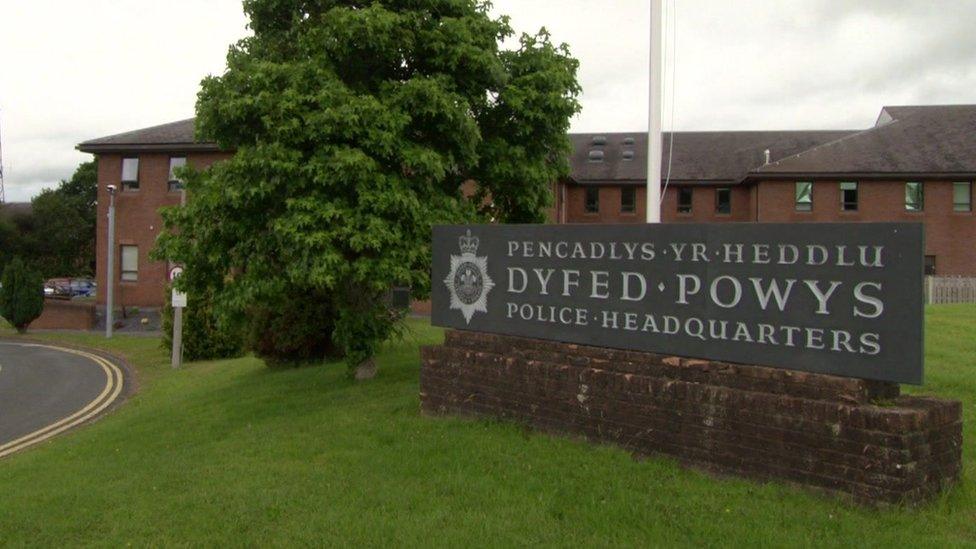
The force covers an area greater than half the land mass of Wales
"What policing needs across the country is further investment," he said.
"We've seen the government uplift figure of 20,000 officers. I'd like to see something similar for police staff members as well."
Dr Lewis said he recognised concerns that resources could be concentrated on towns and cities under one force.
He believed that could be dealt with by creating "shadow structures" to ensure officers working in rural areas remained there.
In Scotland eight forces merged to form Police Scotland in 2013, and has faced problems.
Dr Lewis said: "Police Scotland had a difficult start but I think they're now seeing the benefits of having one national service in Scotland.
"We can learn the lessons, of course, from those early days in Scotland... creating national structures in the IT world et cetera."
Devolution of the police, he said, was a political matter.
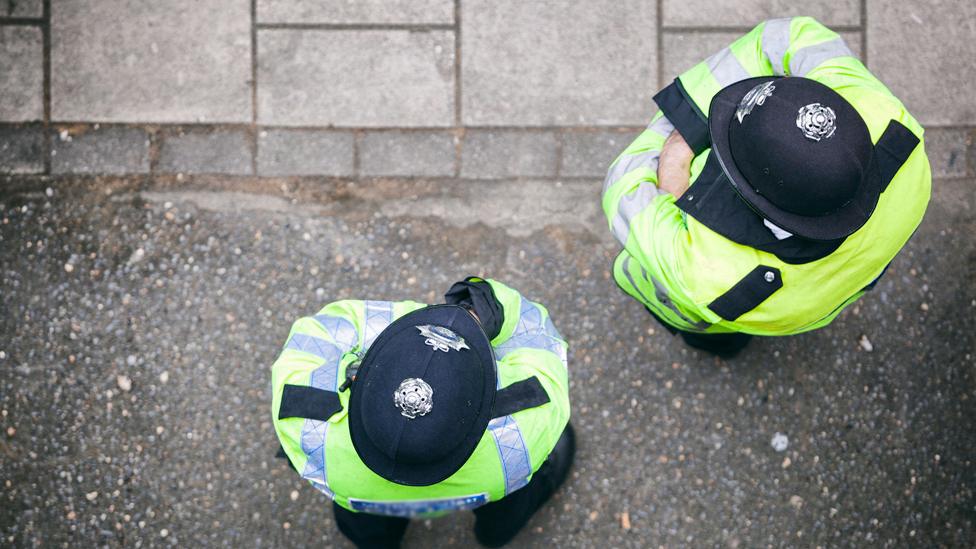
Richard Lewis denied combining the police would be cuts driven
He said: "My concern is around the way we structure our policing services in Wales.
"I understand not everybody will be of the same opinion, but Lord Thomas' report on Justice in Wales, suggested a number of changes that have now been seen, such as a national policing board for Wales.
"National structures do exist. What I'm proposing is a development of those things."
He admitted if there was a unified force, devolution of policing "may be easier to achieve".
He's called for a national debate about whether a "single police force is what the public want to see".
"President Kennedy, in 1962, said that he would put a man on the moon by the end of decade," he said.
"If, starting from scratch, the Americans can put a man on the moon in eight years, I think we can unify four police services in Wales."
But Alun Michael said: "It would be an idea to discuss this within the police first before coming out with a stupid idea such as this.
"I have a lot of respect for Richard Lewis, he will be successful in his own patch but... the roots of policing must be kept local.
"The reactive element of policing can be run in larger areas such as Wales-wide and in the English regions, but it would lose the Chief Constable's accountability to communities. That is what has happened in Scotland."
South Wales Police and Gwent Police declined to comment on Dr Lewis' views.
North Wales Police has been asked to comment.

A merger would create a service with more 7,400 than police officers, according to Home Office figures
A Home Office spokesman said: "The existing police force structure in Wales ensures everyone has a direct say on policing in their area through their locally elected and accountable police and crime commissioner.
"Chief constables and police and crime commissioners collaborate with other forces on a wide range of functions to improve the service they provide to the public."

WILD MOUNTAINS OF SNOWDONIA: Five farming families open their gates and share their lives
LAST CHANCE TO SAVE: Will Millard explores some of Wales’s hidden historic buildings

- Published31 July 2021
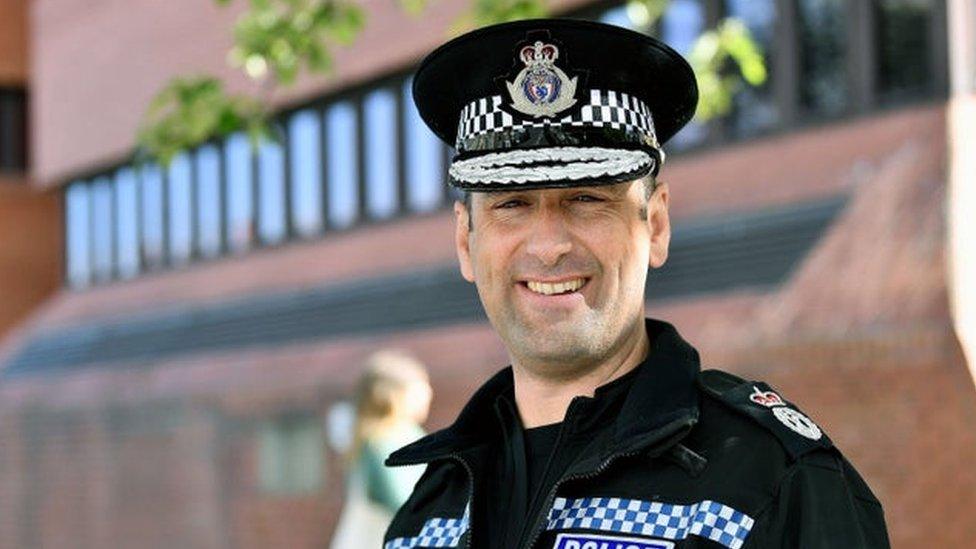
- Published12 May 2021
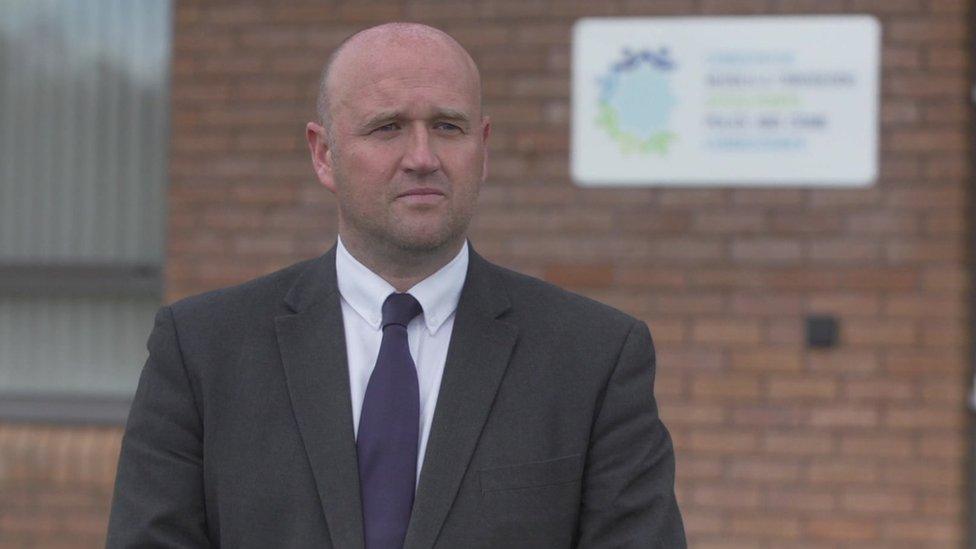
- Published6 August 2021
